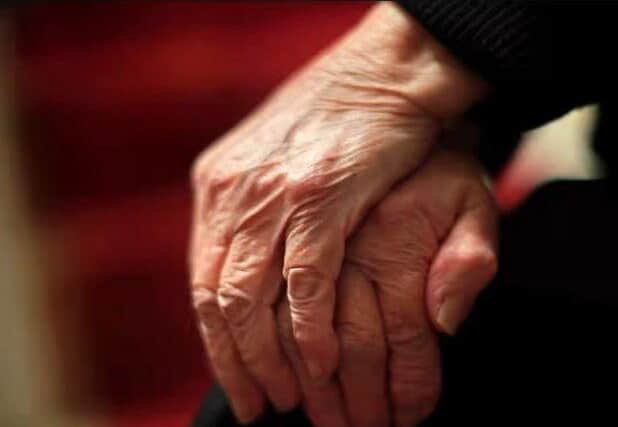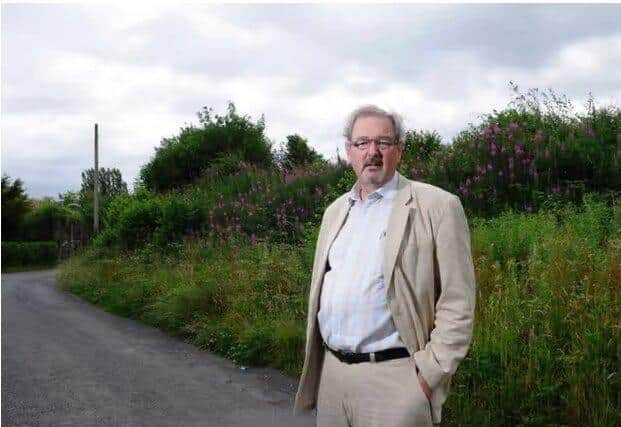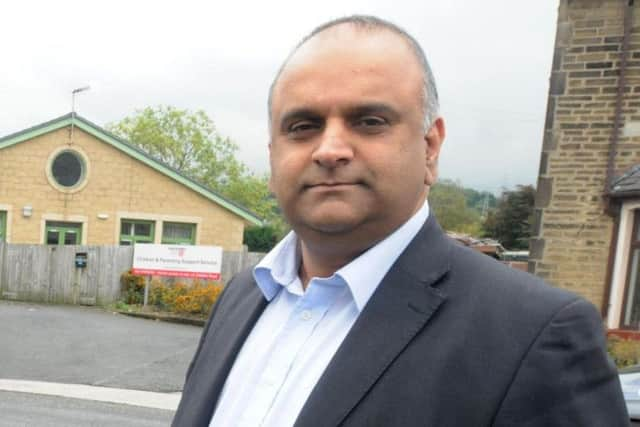Lancashire telecare support service to start charging amid claim the move will "cost lives"
and live on Freeview channel 276
Lancashire County Council has decided to start charging for its “telecare” facility after concluding that it could no longer afford to subsidise the £5.4m annual cost – which is rising at a rate of about £1m a year.
Cabinet members who made the decision were told that some people had signed up to the service simply because it was free – and that it did not serve a “genuinely preventative function” for them.
Advertisement
Hide AdAdvertisement
Hide AdHowever, opposition councillors said that the move was a false economy which would “cost lives”.


Telecare involves the installation of sensors in an individual’s home to detect whether they are moving around and if they have fallen. The person is also provided with a pendant or wrist alarm which they can trigger if they need help.
Conservative cabinet member for adult services Graham Gooch said that the service had been “enthusiastically taken up” – with more than 16,500 users across the county council area. While available to anyone over 18 who is eligible for it under national legislation, the majority in Lancashire are over 65.
However, County Cllr Gooch said that the system had developed two “fatal flaws” – in that it was no longer affordable and also needed a complete overhaul of the equipment on which it relies because of the forthcoming digitalisation of the nation’s telecoms infrastructure.


Advertisement
Hide AdAdvertisement
Hide Ad“[That] give[s] us the opportunity to offer service users much better equipment to monitor them through…behavioural detectors and trackable, wearable technology – some of it even [being] ingestible.
“Some of them will be able to predict problems, rather than reacting post-event,” County Cllr Gooch explained.
But he said that Lancashire County Council was the only authority in the North West – and possibly the whole country – to cover the entire cost of the service and warned that it was no longer possible to continue in that vein.
A public consultation carried out amongst existing service users into the proposed changes found that 46 percent – of 1,650 respondents – were unlikely to continue with it if charges were introduced.


Advertisement
Hide AdAdvertisement
Hide AdLabour opposition group leader Azhar Ali said that, based on that result, around 8,000 people would ditch telecare if they had to pay.
“[For] a lot [of] elderly people I know who have telecare in its current form, actually that’s their only lifeline…and without it, when they’ve had falls, they would have been there for a day or two days before someone [found] them.
“I think that doing what we are doing.is actually going to cost lives,” County Cllr Ali said.
County Cllr Gooch said that in other areas which had introduced telecare charges – such as Greater Manchester – there had not been a “great influx of deaths” commensurate with the reduction in usage of the service. County Cllr Ali said that must mean there had at least been some deaths as a result of charging – although County Cllr Gooch denied that that was what he said or meant.
Advertisement
Hide AdAdvertisement
Hide AdUnder the now agreed plan, the 11,000 Lancashire telecare users who receive no other social care package will, from the new year, have to pay £4 per week for the basic service which alerts a family member or friend to respond to an emergency call. For £5.50, a mobile responder would act in the event of an alarm.
Those users who already have some other form of social care support will have the cost of telecare incorporated into that wider package and their contribution towards it will be determined on the basis of their ability to pay. However, all new telecare users in future will face the full weekly fee, irrespective of their other social care needs or financial assessments.
County Cllr Lorraine Beavers, deputy leader of the Labour group, said that a means test should be applied to all telecare users to calculate whether they should have to pay anything at all.
However, County Cllr Gooch said that would require assessments to be carried out on those 11,000 users who have not had one for other purposes – and that there were “not enough staff” for that.
Advertisement
Hide AdAdvertisement
Hide AdThe meeting also heard claims that the system was not benefiting people as intended.
County Cllr Gooch told of a couple who, when one of them had fallen, had “fired off the machine, which went to the call centre, which [called] their daughter…who then phoned them”.
“So the question [is] – why didn’t they just phone their daughter?”
Deputy council leader Alan Vincent – who said that the introduction of telecare charges was one of many “difficult decisions” that County Hall was facing over its finances – told members that when his own mother had fallen, she had “crawled back to the phone” to ring him instead of using her alarm.
Advertisement
Hide AdAdvertisement
Hide AdA report presented to cabinet acknowledged that if users – many of whom live alone – now felt unable to afford telecare, it may lead to more people “accessing services following a fall or being unable to manage independently at home…and, as a result, being admitted to hospital or a residential care placement”.
It was because of that potential “domino effect”, County Cllr Ali said, that the county council should be working with the NHS on funding the service in order to avoid additional costs for the health and social care system overall.
Those users who do drop the telecare service will be advised of alternative free monitoring systems which are available via other providers. People leaving hospital will also still be offered telecare free for up to six weeks.
County Hall expects that the number of users will fall to around 9,600 in the wake of the new charges, which will themselves generate an income of £1.6m. Combined, that would cut the cost of providing the service to £1.7m for the authority.
The county council will still be subsidising the £4 basic weekly fee to the tune of a further £2.58.
